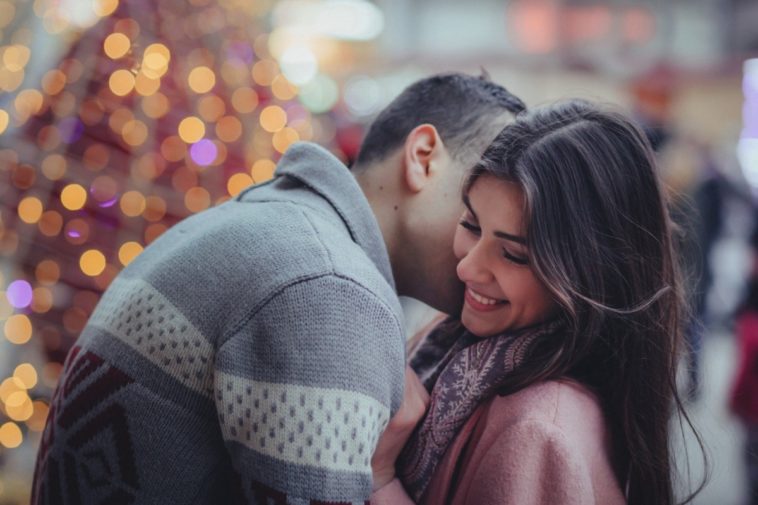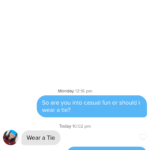h2>Dating : Do You Have a Dating ‘Type’? Research Says Yes
Why you keep falling for the same type of person.

I recently talked to a friend who was recovering from her fifth breakup. “Why do I keep getting all the assholes in my life?” she said, frustrated. Upon digging deeper, I discovered there was a pattern in her romantic relationships. She was getting attracted to the same type of men: men who were charming on the outside, who would shower her with compliments and gifts, who would make her fall head over heels in love, only to turn out to be cheap materials in attractive packaging. I also discovered there were very prominent red flags in her relationships she kept ignoring.
It happens with all of us. We fall for someone, our friends and family warn us the person is emotionally unstable but we ignore their warnings because we’re so hopelessly optimistic about our new love.
Psychologists think our habit of falling for the same type of people is not attributed to luck or accident, rather our tendency to have a romantic ‘type’. This ‘type’ is a personality with certain traits that keeps drawing us towards them. For example, the mysterious type, the charming type, the artist type, the social butterfly, or some other.
Research published in Proceedings of the National Academy of Sciences showed that people have a tendency to fall for a personality similar to their ex-partner’s personality.
“It’s common that when a relationship ends, people attribute the breakup to their ex-partner’s personality and decide they need to date a different type of person,” remarks lead author Yoobin Park “Our research suggests there’s a strong tendency to nevertheless continue to date a similar personality.”
In the longitudinal study spanning a period of nine years, the researchers asked 332 participants who had had at least two romantic partners during this time, to complete Big Five Personality Trait questionnaires. The Big Five personality traits include openness to experience, conscientiousness, agreeableness, extraversion, and neuroticism.
Here’s a brief description of each:
- Openness to experience: This measures how willing someone is to try new things, to think outside the box, how imaginative, intellectual, curious, and creative someone is.
- Conscientiousness: This trait describes someone’s ability to control their impulses, delay gratification, and discipline themselves.
- Extraversion: You know this one. Extroverts are those energetic, social, and outgoing people.
- Agreeableness: The word is self-explanatory. Agreeableness refers to how well someone gets along with others and how they treat their relationships.
- Neuroticism: Neuroticism measures a person’s emotional stability and things like moodiness, anxiety, fear, and insecurity. Those who score high on neuroticism have higher levels of these traits.
Examples of statements measuring the above traits are: “I am usually modest and reserved,” “I am interested in many different kinds of things” and “I make plans and carry them out.” The researchers discovered that current partners described themselves in ways similar to previous partners meaning people’s dating partners had similar personalities.
Keep in mind ‘similarity’ here does not mean similarity to your own personality. For example, if you’re the introverted type who prefers partying at home with Netflix instead of going out, you might think you’re attracted to introverts. Here we mean that similarity exists between people’s current romantic partners and ex-partners.
For example, the ‘anxious’ and ‘moody’ types (those who scored high on the scale of neuroticism in Big Five) tended to date partners with personalities less desirable and more dissimilar to themselves. The extroverted types, though, tended to date personalities who were less like their previous partners. This might be because extroverts like having diversity in their relationships.
The next big question the researchers asked was, “Why do people date the same ‘type’ of person?” There are several explanations for this.
- One, it may have to do with the kind of social situations you expose yourself to. If you’re the type that hangs out in bars, you keep dating types that are mostly found in bars. If you’re actively involved in sports, you keep getting attracted to the sporty types. Or if you spend most of your time in libraries and bookstores, it’s possible that the types you expose yourself to are bookworms and introverts. To get out of this loop of falling for the same kind of person, again and again, expose yourself to different situations and diversify your network.
- A more logical explanation is that you attract the type that finds traits in you that they like. For example, if you’re submissive and easygoing, guess who is likely to find you attractive? The controlling and dominating type. If you’re the emotionally stable type that has their temper under control, you attract the emotionally unstable types towards you because they find you’re easier to get along with and can put up with their emotional fluctuations.
- Another reason has to do with your attachment style. Attachment styles describe how children attach themselves to their early caregivers or parents. There are four basic types of attachment styles given by psychologist, John Bowlby: secure, anxious ambivalent, disorganized, and avoidant.
When we become adults, our attachment styles play out in our adult relationships too.
If you have a secure attachment style, your relationships will have trust and security. You will be attracted to partners like yourself who have healthy self-esteem. In contrast, if you have an insecure attachment style (avoidant, ambivalent, or disorganized) because your parents were distant and unresponsive towards you in your childhood, you are likely to get attracted to types that are cold and dismissive like your parents.
The friend I was talking about was clingy and desperate for love. She had an insecure attachment style. Consequently, she kept attracting men who would give her the slightest attention and love. What she needed was to work on her relationship with herself so she wouldn’t need a guy to make her feel she was worthy.
- Lastly and perhaps the only explanation as to why you keep getting attracted to the same type is because you indeed do have a type. Maybe, you have an image in your mind of an ‘ideal partner’ that you got from the movies you watched in your teens. Maybe you carry a ‘checklist’ in your subconscious mind and anybody who checks the items on your list instantly becomes your next love.



